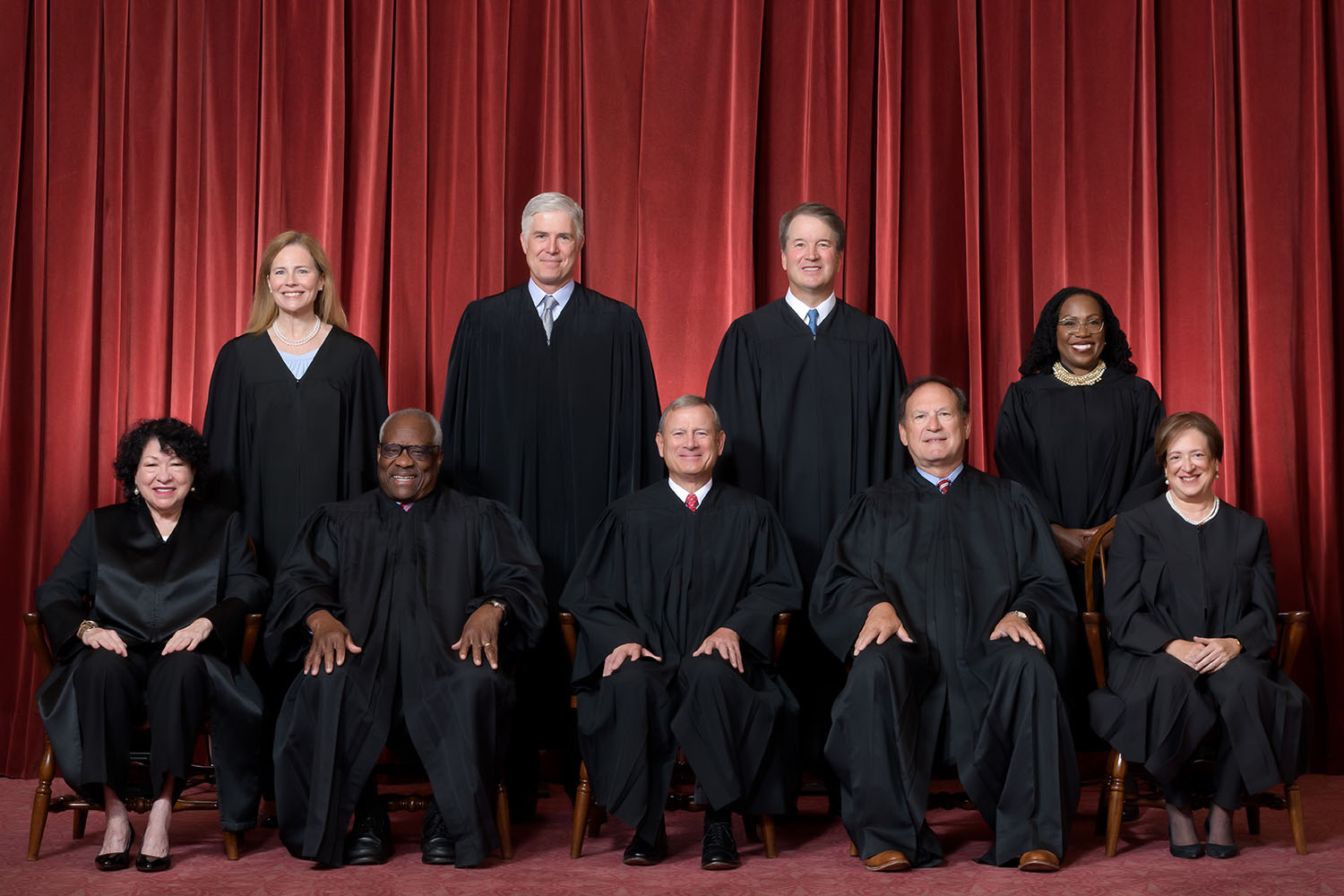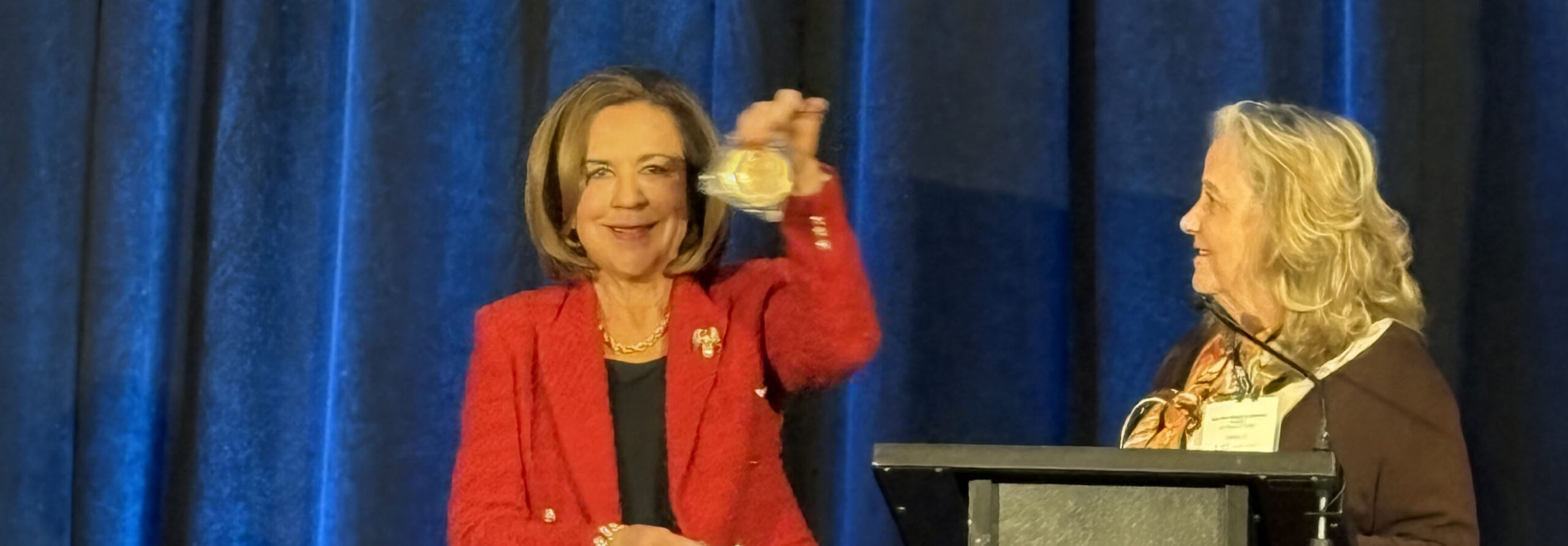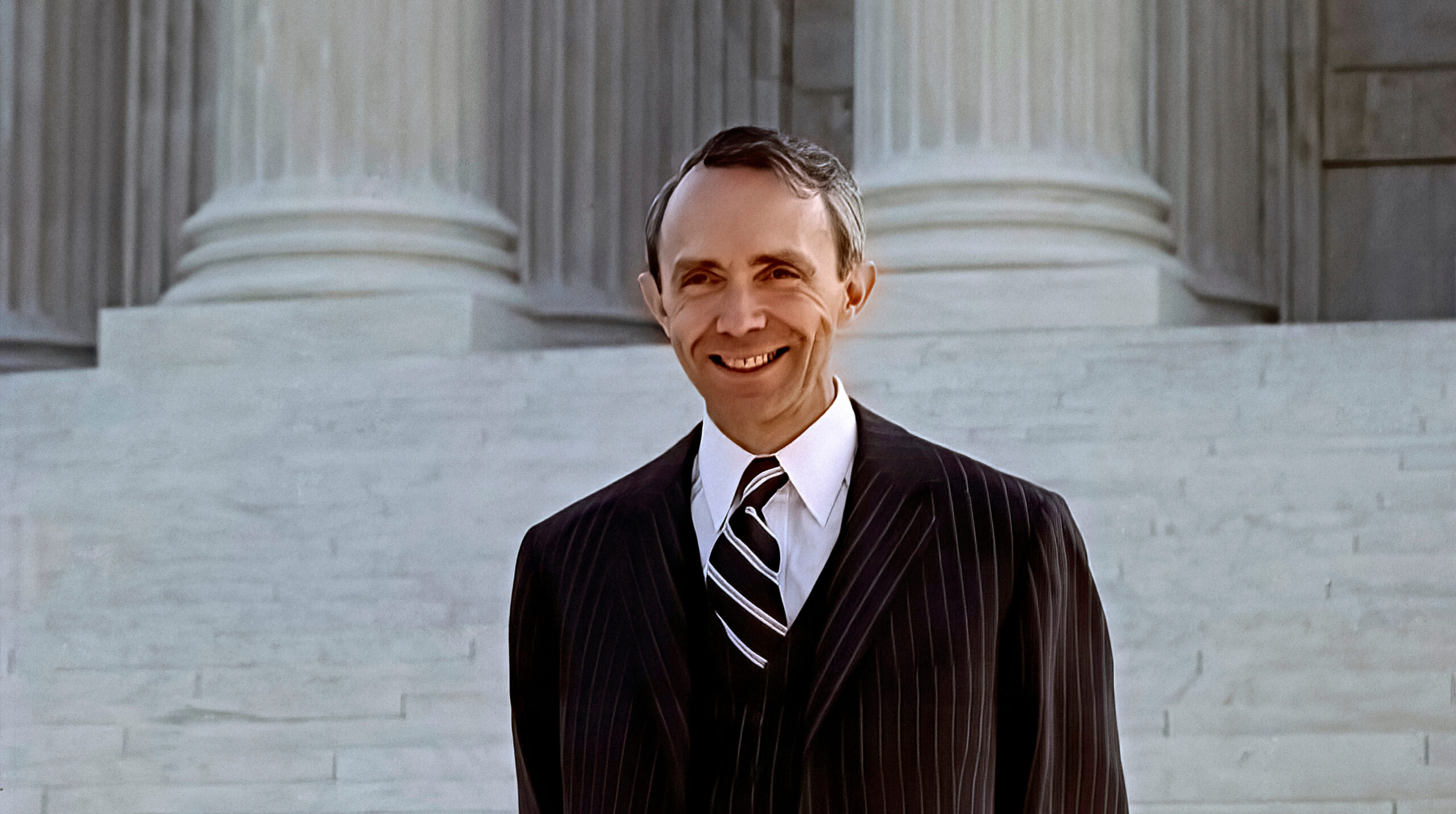
Ask judges if they think there should be term limits for justices of the Supreme Court of the United States, and you get strong and widely varying opinions.
We know because our Question of the Month* emailed to NJC alumni in November asked, “Do you support the concept of an 18-year term limit for justices of the Supreme Court of the United States?”
We received strong and widely varying opinions.
The final tally: 399 judges voted, and approval of the 18-year term limit won 57.5 percent to 42.5. percent.
The question asked about an 18-year term because in October, a bipartisan group of legal experts, which included a federal appeals court judge and a former U.S. solicitor general, endorsed that term length. The group called the proposal a “vital reform” that would reduce partisanship and improve the judiciary’s overall reputation.
In our poll, however, judges disagreed on whether the change actually would reduce partisanship.
“An 18-year limit would enable a regular and planned refresh of the court and avoid the political upheaval associated with sudden death and which party is in power,” declared one anonymous judge.
But Judge Eugene M. Velazco, Jr. of the Merrillville, Indiana, Town Court was skeptical.
He imagined a scenario in which a president could name two candidates during an initial four-year term and two more in a second term. “You could also go long periods of time without a full bench because an opposing party from the president in the Senate could block the selection.”
Many judges said they saw term limits, generally, as essential for accountability.
Traci C. Belmore, an administrative law judge with the California Office of Administrative Hearings, wrote that lifetime appointments are supposed to remove partisanship from the Supreme Court.
“That has clearly not happened,” she opined. “If term limits were imposed, then at least the justices who appear to have been ‘bought’ would have to leave the bench.”
Some judges argued that instead of a term limit, there ought to be an age limit. One judge suggested 80.
“I was prohibited from serving another term as an Ohio judge because I turned 70 the year I was to be re-elected,” an unnamed judge wrote. “That is an Ohio Constitutional requirement. SCOTUS Justices have incredible authority, yet they can serve well into senility. Eighteen years seems extremely reasonable to me.”
Some other judges objected to a mandatory retirement age with one writing, “Age is a number. Advanced age does not always equate to lack of acuity.”
Several judges expressed hope that a term limit would discourage the trend of appointing younger justices to lock in a particular judicial ideology on the high court for more years.
“Less likely to have young people with little experience appointed,” wrote one judge. “Less likely to have dinosaurs that die in office.”
Besides the proposed 18 years, other term lengths were suggested, including 12, 10 and 20 years.
“It actually should be no more than six years and on a staggered basis,” insisted one judge. “It has become a political office and no longer a judicial office. It’s only judicial by name. And they have zero accountability to anyone.”
Many judges pointed out that term limits may be a moot proposition because the Constitution appears to give Supreme Court justices lifetime appointments. It would take a constitutional amendment to change that, and with the country so evenly divided politically, amending the Constitution appears impossible for the foreseeable future.
Several judges also took a cynical view of the proposal, seeing it as an attempt at decisional manipulation.
“So you disagree with the opinions of the justices on the court and now you want term limits? This is precisely why lifetime appointments are so important,” one unnamed judge wrote. “Someone has to protect the Constitution.”
Another wrote, “While I am outrageously distraught, dismayed and downright fearful of the current Supreme Court and would love for most of them to have a two-year term limit, I continue to support a lifetime appointment. Call me hopeful!”
***
* Each month the College emails an informal, non-scientific one-question survey to its more than 12,000 judicial alumni in the United States and abroad. The results, summarized in the NJC’s Judicial Edge Today, are not intended to be characterized as conclusive research findings. The NJC is a nonpartisan, nonpolitical organization and these monthly polls are designed to engage our alumni in thought-provoking dialogue.

The National Judicial College has awarded Missouri Supreme Court Judge Mary Russell with the Sandra Day O�...

Emeritus Trustee Bill Neukom (left) with former Board of Trustee Chair Edward Blumberg (right) at the NJC 60...

The National Judicial College, the nation’s premier institution for judicial education, announced today t...

The National Judicial College (NJC) is mourning the loss of one of its most prestigious alumni, retired Uni...

As threats to judicial independence intensify across the country, the National Judicial College (NJC) today...